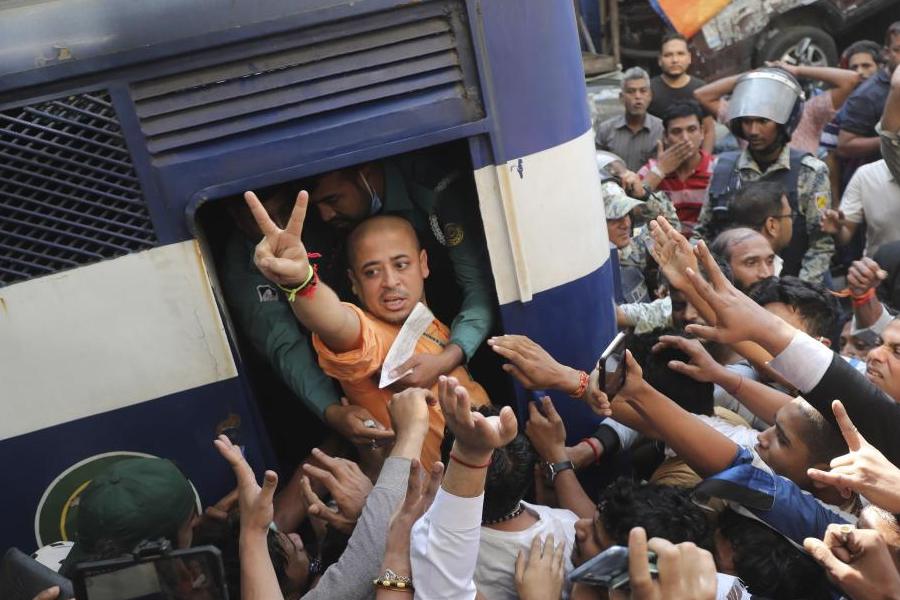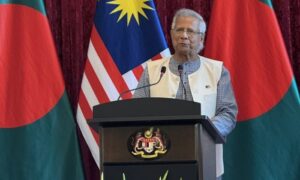
After fifteen years of former Prime Minister (in-exile) Sheikh Hasina’s rule, Bangladesh has a once-in-a-generation opportunity to improve governance and take steps that would restrict another autocratic regime from emerging. However, if the interim government falters, the country could revert to the status quo ante or even enter a period of military rule. The recent violent upheaval that led to a military-backed regime change, followed by the country’s pleas for $6.5 billion in international bailouts, raise concerns about the future direction of the world’s eighth most-populous country. The toppling of Hasina’s government has also triggered an ominous resurgence of radical Islamism, including systematic attacks on religious minorities.
Ironically, Hasina, while becoming increasingly undemocratic during her over 15-year reign, gave Bangladesh political stability and impressive economic growth, before the global economic fallout from the Ukraine war began weighing on Bangladeshi finances.
The interim regime is struggling to restore the rule of law and revive an economy pummelled by large-scale mob violence and destruction. The Islamists have returned with a vengeance, resulting in widespread attacks on the country’s long-persecuted and dwindling Hindu minority.
To make matters worse, political vendettas have gained momentum, as the new regime has engaged in or condoned human rights abuses, including purges, arbitrary arrests, physical assaults on political detainees in courts and curtailment of the rights to liberty and freedom of expression. People from across various professions have been put in jail.
Like in Pakistan, the military in Bangladesh has now returned as the final arbiter in national politics, with the army chief becoming the power behind the throne, holding substantial commercial assets in multiple economic sectors, like Pakistan’s armed forces.
Bangladesh economy is in dire straits, with foreign reserves dwindling rapidly, inflation spiralling, the banking sector in turmoil and economic activity largely at a standstill. It will not be easy to restore the confidence of foreign investors after the large-scale looting, vandalism and arson. Many countries’ advisories against travel to Bangladesh remain in effect.
Bangladesh is a highly polarized country with a poisonous political culture that, over the decades, has fostered a cycle of frenzied violence and deadly retributions. The recent brutal violence is the latest example. Without sincere efforts to initiate national reconciliation and healing, the deep splits in Bangladesh will likely stoke greater hate, vengeance and economic disruption, with the risk that the nation could become a mirror image of its old nemesis, Pakistan.
[the_ad id=”55722″]


















